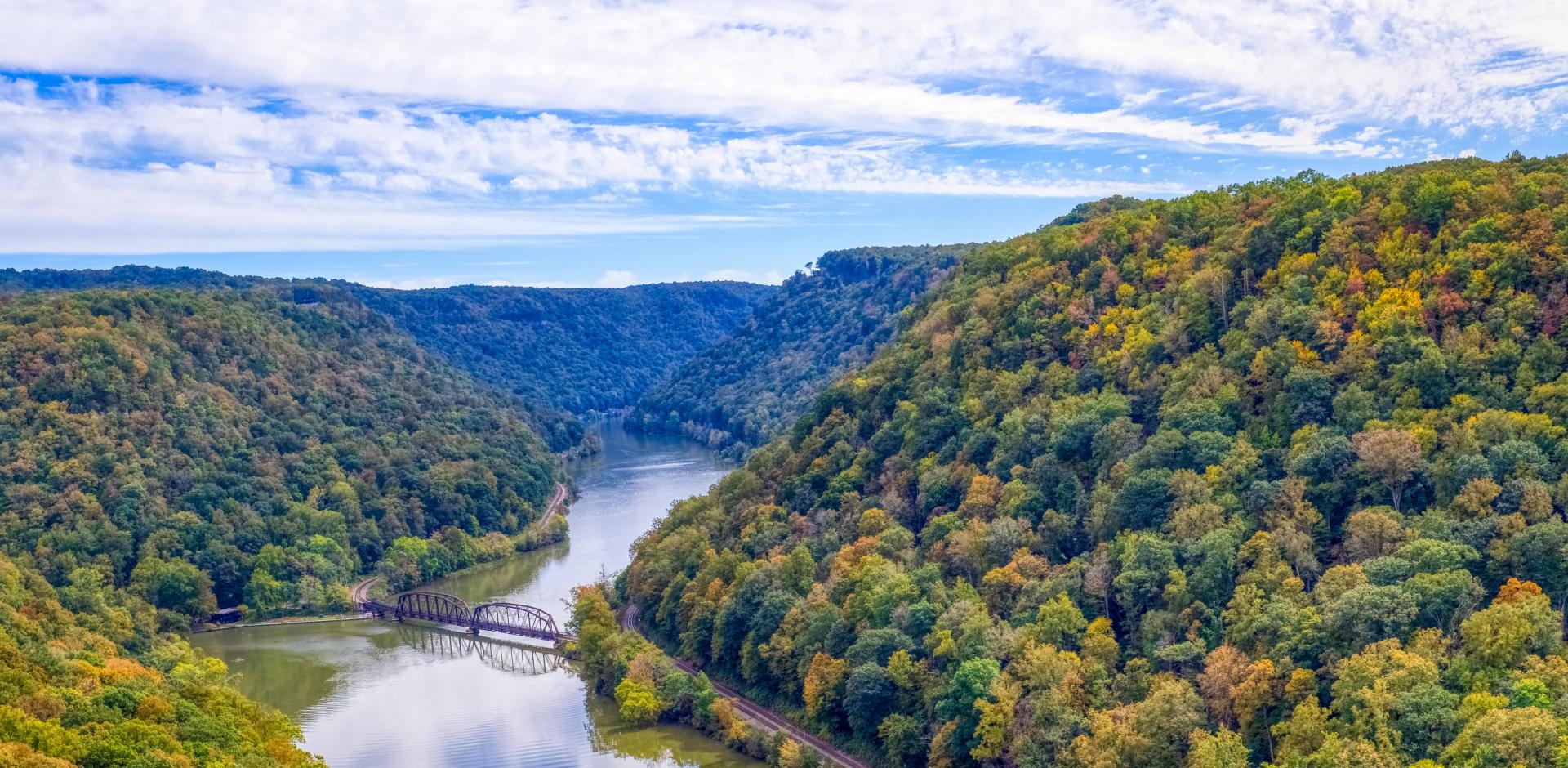
This blog post describes the community that the Southern West Virginia Community Network serves.
By RPN Staff
The Southern West Virginia Community Network, hosted by the West Virginia Community Development Hub (The Hub), consists of the 12 southernmost counties of the Mountain State. The counties of Boone, Fayette, Lincoln, Logan, McDowell, Mercer, Mingo, Monroe, Raleigh, Summers, Wayne, and Wyoming are steeped in pride and southern tradition and long associated with blue collar jobs in extractive industries. The coal industry dominated the region for more than a century with mining operations in all 12 counties. The combination of the coal and strong timber industry led to the expansion and development of the railroads. Downturns in the coal and timber industries, resource depletion, and shifting energy concerns diminished the prosperity and created a persistent cycle of poverty.
However, the resilience and dedication of Southern West Virginians combined with investments in the state’s tourism and recreation economies are creating hope and opportunity in this region. The southern West Virginia region instills a sense of awe with its sprawling hills and twisting waterways. This uniquely rugged landscape allows locals to capitalize on its natural beauty and draws travelers from all over the world to the region’s many family-oriented outdoor recreation opportunities.
The designation of New River Gorge National Park and Preserve in 2021 as the nation’s newest national park brought an added an influx of visitors to the region. Tourists and locals alike take advantage of the park and surrounding region’s assortment of trails, whitewater rafting, climbing, and more. The Hatfield-McCoy Trail System generates a similar impact to the west counties with one of the largest off-highway vehicle trail systems in the world. The 1,000+ mile Hatfield-McCoy Trails offers offroad exploration of the Mountain State to riders of all skillsets, which brings a seasonal boost to the area’s economic activity during the year.
Still, the Southern West Virginia region faces outdated infrastructure concerns, highlighted by the difficulties with transecting the mountainous landscape. Population loss and challenges in public health and economic prosperity create issues for the workforce. The housing market is complicated by a lack of funding and capacity. In addition, manufacturing and outdoor recreation have provided limited boosts to economic development. The Southern West Virginia Community Network will work to address some of these issues and more with the help of USDA Rural Development.
The Community Liaisons for the network will cover the 12-county area, giving the network an on-the-ground approach for collaborating with stakeholders to address infrastructure, housing, workforce, and economic development.
“The purpose of the partnership with USDA Rural Development and the network is to work collaboratively to tackle long-standing economic challenges facing our region, working with local and federal partners to identify and address solutions from the ground-up,” said Stephanie Tyree, executive director of The Hub. “Participating network organizations have identified key priority areas for the network to focus on in its first year, including childcare access, housing, and small business development. We know that by working collaboratively across many organizations, and with key partners like USDA, we can invest in new innovative solutions that will benefit southern West Virginia."

